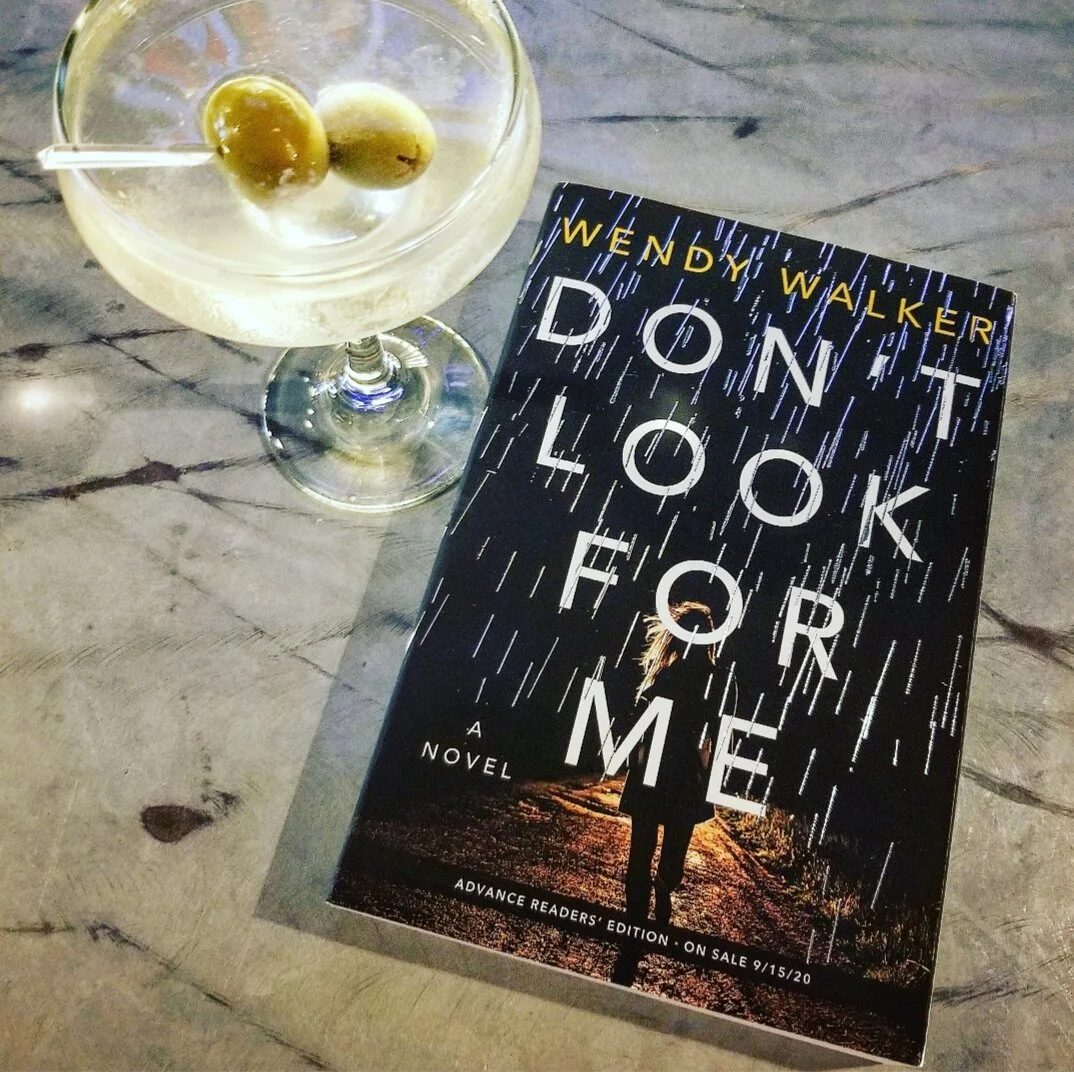REVIEW: "Baby Teeth" by Zoje Stage
I have a 22-month-old. And, despite the fact that he said his normal first words, mama, dada, bubu, maybe an errant Wiggles lyric or two, he's not really much of a talker. Mainly he likes to share these highly emotive squeaks and chirps that, I'm sure, mean something in some language I don't speak.
But still, I know he needs to be picking up more words for his age.
The knowledge of developmental milestones notwithstanding, I wasn’t really worried about my son’s lack of linguistic dexterity. Kids, after all, develop at their own rates.
I wasn’t worried, that is, until I read this book.
Now, I’m low-key terrified of my toddler.
You see, much to my chagrin, central to this book is a (selectively?) mute 7-year-old who is also, well, for lack of a better word, evil.
Now, I should preface my discussion of this novel and its merits by saying that I, personally, have never underestimated the disruptive power of children. Like zombies — but without the insatiable hunger for brains — children could destroy entire villages if only they had the organizational skills and ability to remain focused on one task for more than five minutes.
I developed and refined this belief while working as a teacher. Though my decision to leave the classroom behind had nothing to do with a fear of children, I do distinctly remember multiple occasions on which I stood in front of a classroom, looking at the 24 – hopefully smiling – faces and thought, “If they get organized and decide to stage a coup, I’m pretty much fucked.”
I also don’t labor under the misapprehension that all children are inherently wonderful – this, also, is a byproduct of my history working with kids.
But never in my education career have I ever encountered a child who was quite as naturally predisposed to behaving badly as the child in this novel, Hanna — and I’ve taught one or two children who, now adults, are in jail, so I’ve got a bit of street cred here. #JustSaying
Hanna, the 7-year-old at the center of this novel should, be all accounts, be a wonderful, well-adjusted child. The daughter of two loving parents, Hanna has been raised since birth by her stay-at-home mother and doted on by her loving father.
Despite all of the well-meaning efforts of these adults, however, Hanna hasn’t developed as expected. Aside from never starting to speak, Hanna has also repeatedly demonstrated a tendency towards violent behavior and a resistance towards connecting with her mother in any meaningful way.
And Hanna’s issues aren’t the only problems Suzette, Hanna’s mother, has to face.
Suzette is also engaged in a decades long battle with Crohn's disease, a condition which is, at times, physically incapacitating and, at others, simply a constant, often disgusting, reminder of her body’s inability to perform a basic function of life.
For perfectionistic Suzette, her battle with Crohn’s and Hanna’s clearly abnormal development are particularly troubling. Unlike the surfaces of her home, which she can scrub and polish until they are shiny and free from even the most minute imperfection, there is nothing she can do about the health issues that plague her and the developmental issues that manifest themselves in her daughter.
Making matters even worse, Hanna reserves her worst behavior for Suzette, who she feels a particular anger towards. This puts Suzette at odds with her husband, Alex, as he rarely witnesses Hanna’s bad behavior first hand and, as such, has difficulty believing Suzette’s accounts of the things Hanna does.
To Alex, Hanna’s behavior — particularly her lack of speech — is worrisome, but not scary.
But Suzette is at the end of her rope.
She feels like something needs done.
Now.
Adding complexity to an already obviously really fucking complex situation is the fact that Suzette’s own mother demonstrated some combative, aberrant behaviors when Suzette was a child.
This leaves Suzette wondering whether she actually knows how to be a good mother.
And leaves readers wondering whether Suzette is actually being a good mother or if she is, instead, simply a tragically unreliable narrator who’s actually, at least in part, responsible for her daughter’s mental dysfunction.
Ultimately *Spoiler Alert* we never get an answer — to the question of Suzette’s culpability, at least.
But I’m glad we don’t.
Because this novel, like the complex task of parenting itself is rich in questions and light on answers.
Honestly, I left this novel feeling neither at-ease with the stability of the conclusion nor confident in the continued happiness of this family.
But that’s okay.
Because that’s real.
With rich characters, high-stakes and a naturally compelling driving conflict, this novel begs to be read — quickly.
Through rapid reading of this novel — and, trust me, there is no way not to read this one rapidly — readers become fully immersed in the world of this family and begin to feel as if not just the fictional characters contained within, but instead the readers themselves, have something serious at stake.
While I generally felt that this novel was well-paced and authentically reflective of what it’s like to work with and/or parent a difficult child, I did have some issues — however nit-picky — with logistical elements within the text.
*Spoiler alert*
One such subtle detail was Alex's unwillingness to take on parental responsibilities — even in times of extreme crisis.
*Full Disclosure - My opinion may be biased because I have a work-from-home husband who does the lion's share of the domestic duties.
But, still.
For example - As Hanna’s behavior continues to escalate, she does something that incapacitates her mother, making Suzette largely defenseless against this proven-to-be-violent-if-not-homicidal child.
Suzette, understandably, hesitates when Alex has to leave to run an errand. When it’s decided that he absolutely must run this errand, a long conversation about how Alex can prepare Suzette to defend herself ensues.
Um… okay.
Here's an option.
Take Hanna with you.
Problem. Solved.
And yet it occurs to neither of them.
I mean, come on Alex…
*End Spoilers*
As I said, the issue described above — and perhaps a handful of similar ones — were small and largely inconsequential, but still worthy of mention.
Overall, though, having finished this book and given it some time to settle, I’ve come to some conclusions.
First — and, I would argue, foremost — I feel confident that my own little toddler of few words isn’t harboring plans to murder me — Even though he can throw his plastic lemon with surprising might, given his size, he’s way too interested in rockabye-ing his bear to be planning a homicide in detail.
That said, after rumination on the plot of this novel, the premise as a whole still gives me pause — as it, honestly, should give any parent pause — because it serves as a reminder that children are not always as malleable as people assume they are.
They aren’t always that raw ball of clay, easily shaped and molded.
Some children, I do believe, come pre-fired.
And deciding what to do with these children — how to handle situations that, despite requiring serious change, appear largely unchangeable — that’s an imposing — if not impossible — task.
While inarguably not the easiest of reads, Baby Teeth was commanding, complex and compelling. In providing a no-punches-pulled commentary on the ages-old debate of nature vs. nurture, it induced serious thought and inspired reflection that continued well past the conclusion of the novel.
I give it 4 out of 5 cocktails.
Okay… time for a book that is not about an evil child. Want see what I pick? Follow me here.
While it makes for good fodder for a book, some people would argue that children can’t really be born with a propensity for evil. What do you think? Tell me your opinions on nature-vs-nurture in the comments, below.
* Drink. Read. Repeat. is a participant in the Amazon Services LLC Associates Program, an affiliate advertising program designed to provide a means for sites to earn advertising fees by advertising and linking to Amazon.com. As an associate, we may earn commissions, at no cost to you, from qualifying purchases on Amazon.com












